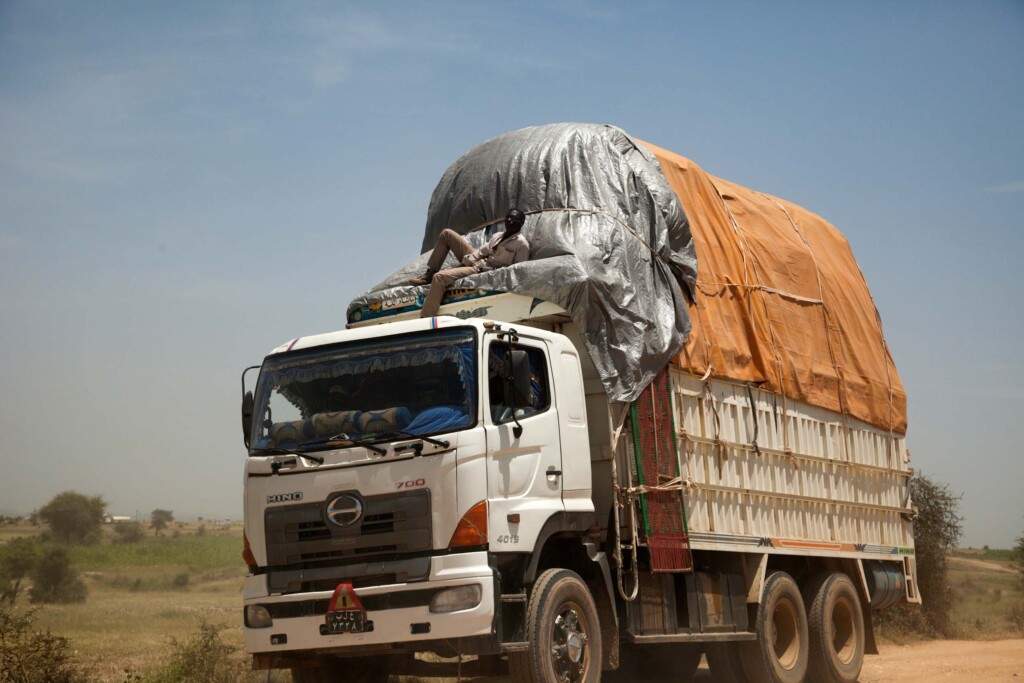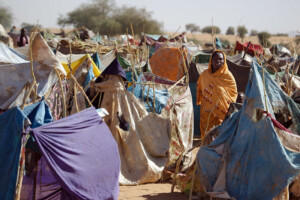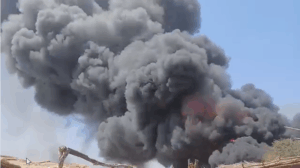Three killed in attack on ‘lifeline convoy’ en route to North Darfur capital

A lorry in Darfur (File Photo: Albert González Farran / UNAMID)
On Saturday, a large convoy from Port Sudan arrived in El Fasher, capital of North Darfur. The convoy, protected by the Darfur Joint Force, was attacked on the way by gunmen blocking the road in El Kuma, North Darfur, killing three people and injuring five others.
The convoy, which included 25 lorries for humanitarian aid, medicines and items for agricultural improvement programme, in addition to 100 fuel tankers, about 1,290 lorries loaded with commercial merchandise, 170 private vehicles carrying civil registry tools and devices, and several travel buses.
The vehicles were protected by troops of the Darfur Joint Force, formed of former combatants of the rebel movements that signed the Juba Peace Agreement in October 2020.
“The convoy moved from Kosti in White Nile state via North and West Kordofan to North Darfur,” Maj Ahmed Hussein, official spokesperson for the Darfur Joint Force, told Radio Dabanga. “Members of the joint force also accompanied the lorries that went to North and West Kordofan.”
Roadblock
On Friday, the convoy was intercepted by gunmen blocking the road near El Kuma town in North Darfur. “The joint force confronted the aggressors and were able to reopen the road, enabling the convoy to make its way to El Fasher,” the major reported.
In a joint press statement, the security committee and native administration* leaders in El Kuma reported that “Ziyadiya bandits who had blocked the road, fired at the joint force at the entrance of the town on Friday”.
Three people were killed and five others injured during the ensuing gunfight.
“To facilitate and secure the flow of commercial convoys”, the security committee and the community leaders said they “will continue to coordinate their work on all levels”.
Investigation
Governor of the Darfur region Minni Minawi announced in a statement yesterday that a committee was formed by the joint force and the Ziyadia tribe to investigate the attack on the “lifeline convoy” on Friday.
Minawi described the incident as “unfortunate”, and called on “all parties to exercise restraint, calm and rationality”. He declared that the Darfur Regional Government bears responsibility for the victims on both sides, promising to resolve the matter “as soon as possible”.
Rumours circulated in El Fasher last week regarding “an imminent RSF attack on a convoy of lorries carrying humanitarian aid and weapons to the city”.
* The Native Administration was instituted by British colonial authorities seeking a pragmatic system of governance that allowed for effective control with limited investment and oversight by the state. The state-appointed tribal leaders were also responsible for executing policies, collecting taxes, and mobilising labour on behalf of the central government. According to the Darfur Bar Association (DBA), the Native Administration during the 30-year rule of dictator Omar Al Bashir did not represent the real community leaders.











 and then
and then